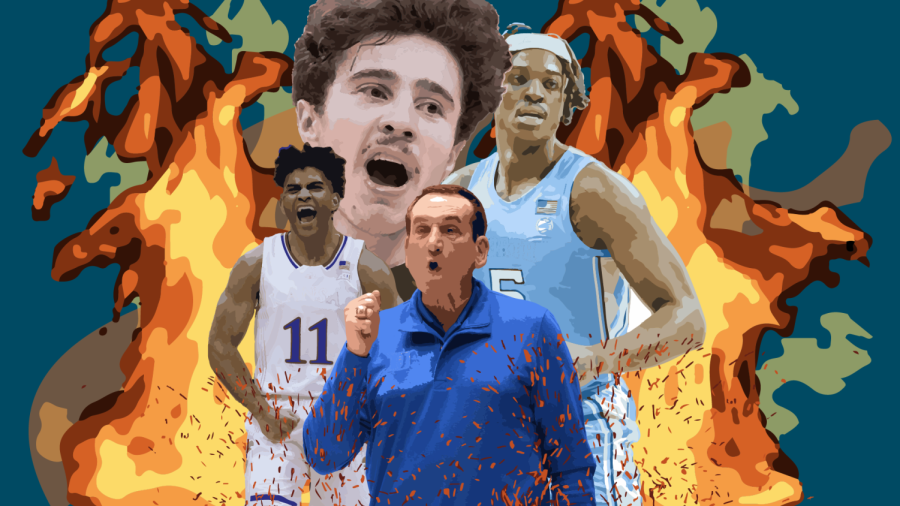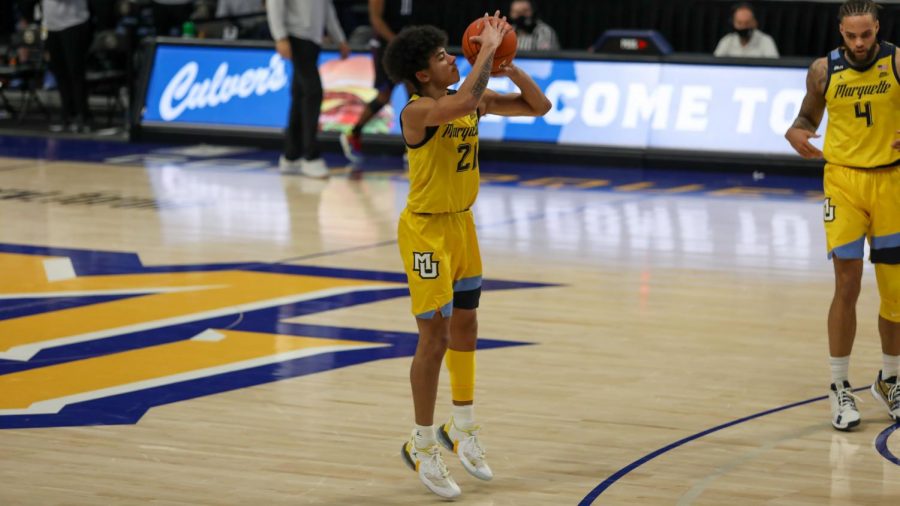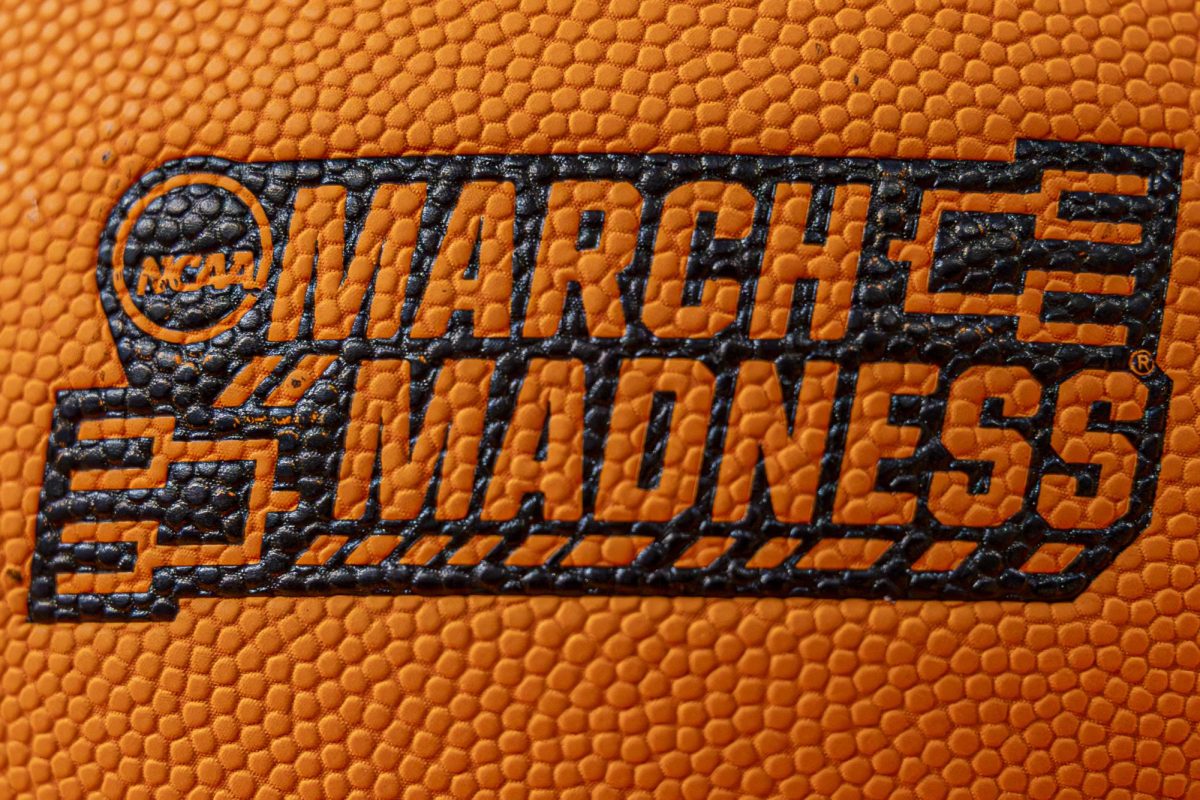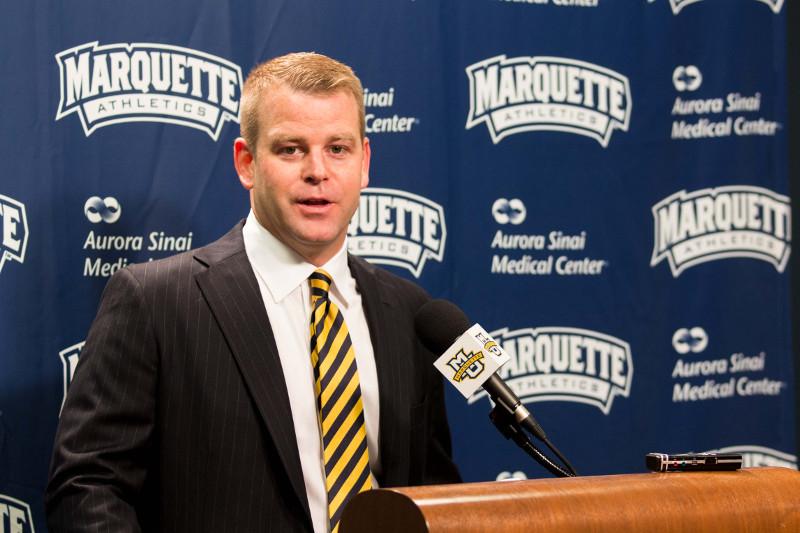Memphis men’s basketball player Austin Nichols requested a transfer from his school last Tuesday. The reasons why he made the request were never adequately explained, and a week later there are still few know
n details.
That’s inconsequential at this point. After all, who’s going to stand up and say that a 20-year-old doesn’t have the right to do what they think is best for their own future?
The athletic department at the University of Memphis, that’s who.
The school’s athletic department blocked the junior forward’s transfer request without explanation. Without a signed release from his former university, Nichols would have to sit out a full year of basketball and wouldn’t receive any athletically-related financial aid during that year.
Think of it this way: how upset would you be if you decided to transfer from Marquette but were flat-out denied from doing so because your academic advisor thought it wouldn’t be best for you? Would any level of kindness, concern, or sincerity make that hypothetical any less ridiculous than it is?
No? Well then imagine how Nichols feels right now, and then consider whether or not there is something fundamentally wrong with how this system operates.
In February, I wrote about the gross imbalance of power between institution and athlete, and it appears that absolutely nothing has changed — not like I or anybody else was really expecting it to. Ever since the dawn of college sports, the NCAA and their member institutions have made vast sums of money by exercising complete and unilateral control over the unpaid “student-athletes” that play by their rules, and this is just another example of that. There is not enough time to get into all of college sports’ moral shortcomings, but this particular case is uniquely representative of one of the system’s biggest issues.
Memphis head coach Josh Pastner defended his decision by saying that he wants Nichols to speak with him before requesting a transfer, which is something that he has not done as of yet. He also said that the late timing of the transfer request is problematic, since plans have already been made for next year with the assumption that the talented Nichols would be on the team. He contends that it’s “not about us trying to hold a kid back,” but about Nichols being a “man of his word.”
Nichols does not contractually owe Memphis anything at this point in time. Nichols’ athletic scholarship does not begin to pay out until the school year actually starts, so it’s not as if he’s taking something from the university and failing to fulfill his end of the bargain. He is perfectly within his rights to make the request that he made.
Now, could Nichols have made the announcement much earlier and given Pastner a chance to find a replacement? Yes, of course. Still, that should not give a coach carte blanche to block a player from leaving the program and jeopardize his financial aid. Doing so, especially after claiming to care about his well-being, amounts to little more than simple spite.
Furthermore, Pastner’s assertion that he wants to talk to Nichols before granting his request, while noble in intention, is really a demand instead of a request. Memphis is holding Nichols’ future hostage in order to bring him to the table, and there’s nothing that says they ever have to let go of it even if he does explain himself. Nichols’ future happiness, education and fulfillment- all things that both the program and the NCAA claim to care about- should not hinge on his ability to convince his now-former coach of how much he doesn’t want to be at Memphis.
Granted, Nichols could have certainly handled this request a lot better than he has. Two other Memphis players asked for transfers far earlier in the offseason and were granted their requests without delay, so Nichols could have done the same and left Pastner enough time to find a replacement. Nichols also made his transfer request through his father instead of going directly to Pastner, which is also probably not the ideal way to handle this matter.
We may never know why he didn’t afford Memphis those common courtesies- maybe a sudden change of heart, maybe a traumatic life event, or maybe a simple oversight- but it still shouldn’t matter. Austin Nichols does not owe anybody an explanation, regardless of what Josh Pastner or anybody else at Memphis says, and his lack of one is not anything close to a good reason for stripping away his financial aid.
This incident is yet another instance of college coaches wielding almost dictatorial power over athletes’ livelihoods. Coaches have the authority to rescind scholarships without explanation, ban players from transferring to certain schools, push existing student-athletes out the door, and do all sorts of other things to shape the roster the way they want it to be shaped, regardless of the needs or wants of their players. After all, players need to be taught a lesson about keeping their word.
But what about the coaches? When a coach signs a contract with a smaller school and then gets offered a better job by a larger one, are there any rules in place to keep that coach from transferring? Is that coach scolded like a disobedient child for “not keeping his word?” Is that coach denied a year of his or her salary unless all of the players get together and agree to grant their former coach a release? Are coaches obligated to show the same kind of loyalty to their schools that they expect of their players?
Proponents of the current system can’t have it both ways when it comes to transfers. Nobody can logically justify keeping players unpaid and treating them just like any other college student, yet also expect them to honor a decision they made when they were 17 years old like they would a professional contract. The NCAA is unquestionably a flawed organization, but giving coaches the power to block student-athletes from transferring is downright unjust.







